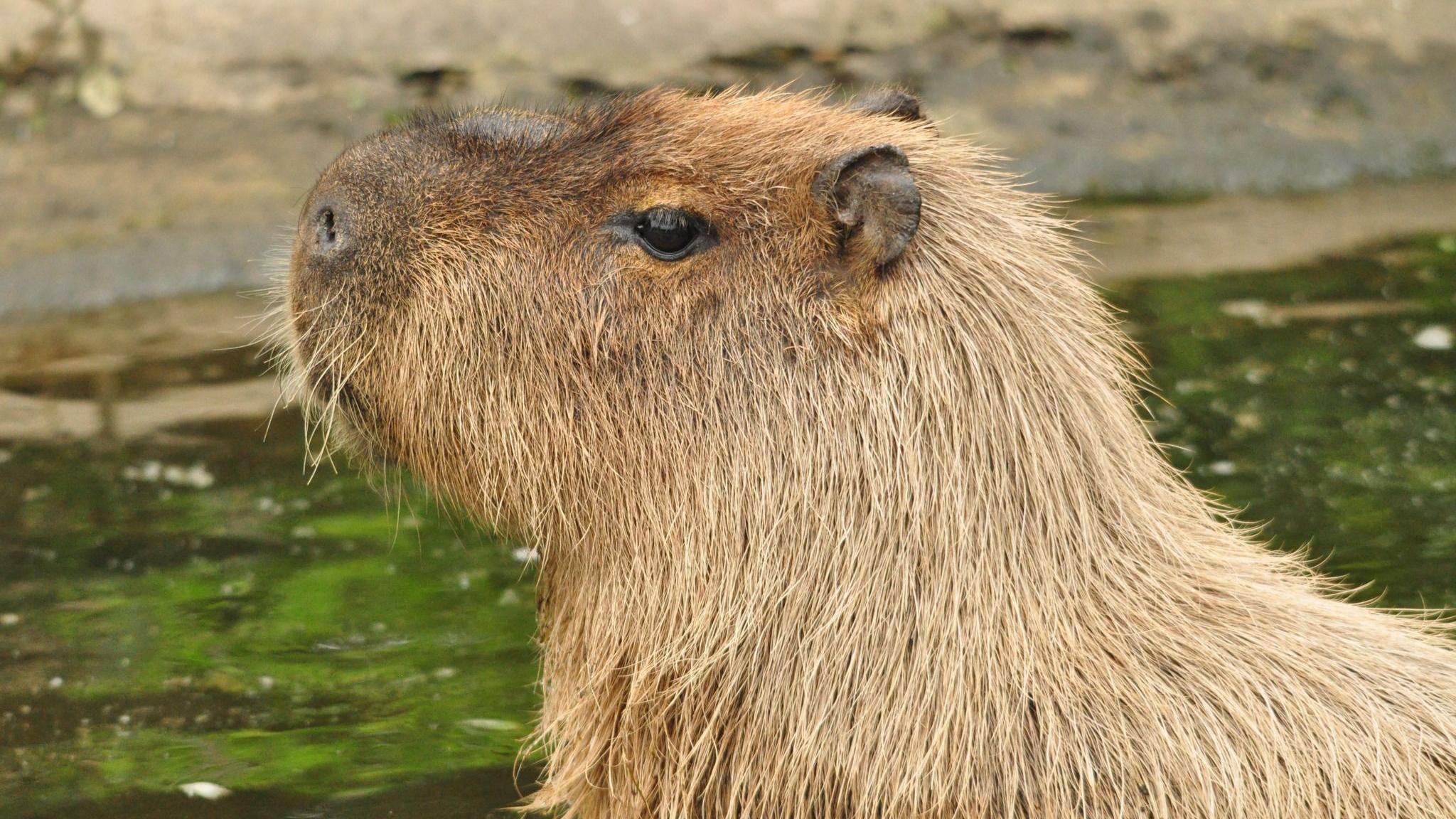Missing capybara Cinnamon said to be 'living her best life'

Cinnamon has been missing from her enclosure for a week
- Published
The owner of a zoo in Telford where Cinnamon the Capybara escaped from, has said she's "living her best live".
She ran away from Hoo Zoo in Telford a week ago, but has been spotted in woodland nearby.
Zoo owner, Will Dorrell added they're working with experts and specialists to get her back but are leaving her be for the moment to not scare her into another location.
He added: "We're confident we're going to get her back but we need to take our time with it, to get her back safely."
More stories like this
- Published20 August
- Published30 April
- Published25 March
A capybara like the one in this photo has gone missing from a zoo
How did Cinnamon the capybara escape?
Will Dorrell told the 大象传媒 it was a "keeper error":
"When they went in to mow her enclosure with a tractor mower the gate was open for a short period of time as they drove through it.
"She managed to run around the side of the tractor and get out.
"But we're conducting a thorough review to make sure it doesn't happen again."
How will keepers get Cinnamon the capybara back?
Keepers are working with experts and specialists to build a fence around the area to get Cinnamon back into her enclosure.
"It's something we're working on at the moment," said Mr Dorrell, "but it's very dense woodland that's easy for a capybara to move under and through but not so easy for us or for putting a fence up, so we're working on lots of different ideas and hopefully we'll have a plan in place in the next few days."
Cinnamon has been spotted not too far from the zoo but people are being asked to keep away so she doesn't run away to another area
Cinnamon is "living her best life"
Keepers say the one-year-old rodent has "always been a bit cheeky".
"In the wild they live in rainforests and woodland and live very near to lakes and rivers because their first form of defence is that they go swimming - they're fantastic swimmers - so they run away from things by going underwater.
"Where she's fled to is a woodland with a very similar type of undergrowth, there's lots of ponds in there as well so she's literally living her best life at the moment because she's got food on tap.
"That's one of our biggest issues because we can't offer her something that she hasn't already got."
The capybara belongs to the same family as the guinea pig
Capybara facts
Capybaras are the world's largest rodents and are native to South America.
They look a bit like a big guinea pig and are around the same size as a medium sized dog.
They are very sociable animals and are usually found living in small herds on grassland, in tropical rainforest, as well as in wetlands across the continent.
Capybaras have even been known to eat their own poo! It's because digesting their food a second time helps them to absorb the nutrients in it.
While they're not munching on their droppings, they eat grass and aquatic plants.
Capybaras have webbed feet and their eyes, ears and nostrils are on top of their heads, allowing most of their bodies to remain under water for long periods of time.
